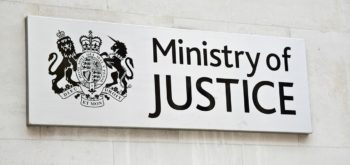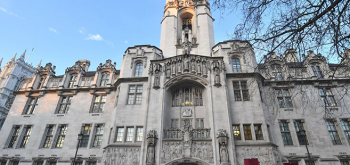A new report by the Legal Action Group (London Advice Watch) provides a comprehensive overview of London’s landscape of advice agencies that currently cover social welfare law. Social welfare law – or ‘poverty law’, as it is known in international academic circles – covers legal advice most relevant for the poor and vulnerable, such as housing, debt, benefits, employment and, in some definitions, immigration matters. The Legal Aid Sentencing and Punishment of Offenders (LASPO) Bill proposes to eliminate these from the scope of civil legal aid.
The report (written by the journalist Fiona Bawdon and LAG’s director Steve Hynes) could not be more timely in light of last week’s vote in the House of Lords backing amendments proposed by Baroness Doocey and Lord Newton aiming to keep all benefits appeals within the legal aid scheme. This would mean that the London agencies discussed in the report might be able to retain a slice of their current legal aid income which accounts for a large portion of their budgets (typically between 40 to 70%) and which will be lost if the legal aid bill is not amended.
The LAG report goes to the heart of the matter by surveying the overall provision of legal services in London (where these services are far more widely available than in most other parts of the UK) and also speaking to advice organisations (some of which are profiled in the report) about their future funding position and strategies relating to this.
To briefly summarise, the survey found that Londoners show more support for free-at-the-point-of-access legal services than the overall UK population, but at the same time London has greater need of these services. Currently, Londoners of all social classes use advice agencies, but the mandatory telephone gateway proposed by the government would most likely prevent the most vulnerable people (such as those without access to a telephone, hampered by poor language skills or mental disabilities) from accessing these services in the future.
Young people overall seemed to be in a better position for accessing Internet advice. Although the Citizens Advice Bureau brand had highest recognition, the survey found that people actually sought advice from a variety of providers, many with fairly poor brand recognition. The survey ends on a grim note, pointing out that the government’s ‘transition’ funding has not so far enabled advice agencies to identify and secure longer term funding sources that are substantial enough to replace the loss of legal aid coupled with reductions in local authority funding.
Resilient
As a social anthropologist currently carrying out qualitative fieldwork in two London legal services providers, I was particularly interested in the insights imparted by the second half of the study, based on interviews with representatives from Advice UK, the Law Centres’ Federation and others. They highlight the value of the contribution made by smaller advice providers who are well attuned to the needs of the communities they serve and often innovate to fill niches identified by themselves, addressing specific demands and localised issues.
Such organisations, I would stress, are one of the great treasures of London’s charity landscape – and they are also, as the report’s authors point out, most likely to disappear as a result of the cuts. Adept at making the most of very meagre funding, smaller not for profit (NFP) organisations are far from inefficient or uncompetitive – as they tend to be perceived by government reformers. On the contrary, one could argue that they are in some ways akin to flexible niche businesses – and they have proved their resilience by holding their own for years against businesses and larger charity organisations with whom they routinely competed for government contracts.
Pincer movement
Last week’s debate in the House of Lords shone the spotlight on vulnerable individuals and those about to become vulnerable following the implementation of the Welfare Reform Bill, which will introduce an innovative and never previously tested social security model. This is expected to result in an initial increase in errors of public administration, driving up demand for legal services whilst simultaneously the relevant areas of legal expertise are being eliminated from the scope of legal aid funding. This would create ‘a pincer movement’, as Lord Newton, a former social security minister under the Thatcher government, aptly put it.
The London Advice Watch report is a timely reminder that it is equally important to remember the professionals who are committed to continually challenging unfair pieces of legislation by taking the cases of vulnerable clients to their logical conclusion – thus ensuring that the channels for legal action are kept open to all. Once London’s vibrant advice services are decimated it will be impossible to resurrect them.





